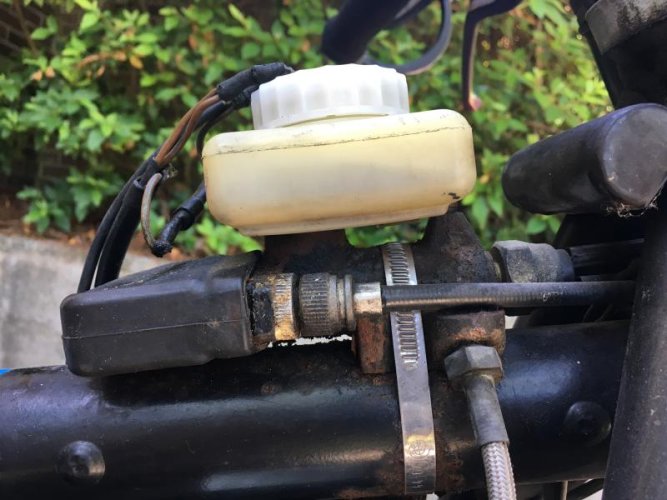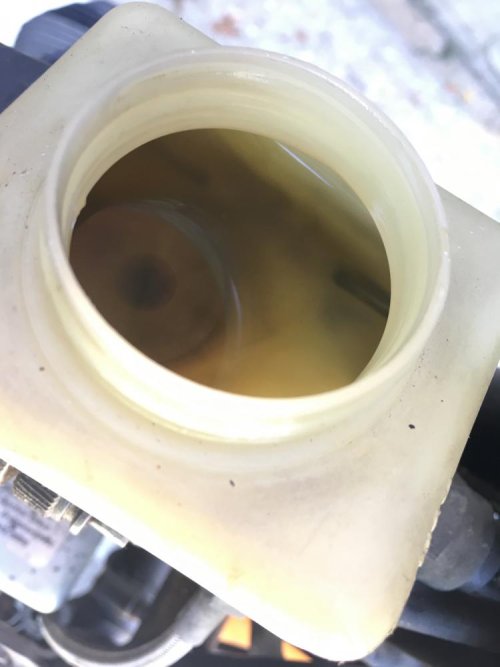Hey Forum,
This is my first bmw bike and I'm really excited to start riding it and being a part of the forum! I just bought it over the weekend and rode it around town for the first time - there are some things that dont think are correct and wanted to get some ideas on where to start. The first issue that I want to tackle is the front brake:
Again, 1979 R100T /7
The front brake seems to be randomly and temporarily losing pressure. When the lever is pulled, sometimes it can be pulled all the way in without working. If I pump it once or twice it starts working again. Also seems to lose pressure if I hold it down a long time (ie, at stoplight on a hill).
So, being totally unfamiliar with these bikes (but eager to learn), where should I start? Should I try to bleed the brakes a bit? Is there a way to test the master cylinder? Something specific I should try?
Clymer manual is in the mail, so I thought I would start here while waiting for it to arrive. Please let me know what you think! Once I get this taken care of I'll start looking at the strange oil leak that I have going on.
Jordan
This is my first bmw bike and I'm really excited to start riding it and being a part of the forum! I just bought it over the weekend and rode it around town for the first time - there are some things that dont think are correct and wanted to get some ideas on where to start. The first issue that I want to tackle is the front brake:
Again, 1979 R100T /7
The front brake seems to be randomly and temporarily losing pressure. When the lever is pulled, sometimes it can be pulled all the way in without working. If I pump it once or twice it starts working again. Also seems to lose pressure if I hold it down a long time (ie, at stoplight on a hill).
So, being totally unfamiliar with these bikes (but eager to learn), where should I start? Should I try to bleed the brakes a bit? Is there a way to test the master cylinder? Something specific I should try?
Clymer manual is in the mail, so I thought I would start here while waiting for it to arrive. Please let me know what you think! Once I get this taken care of I'll start looking at the strange oil leak that I have going on.
Jordan





